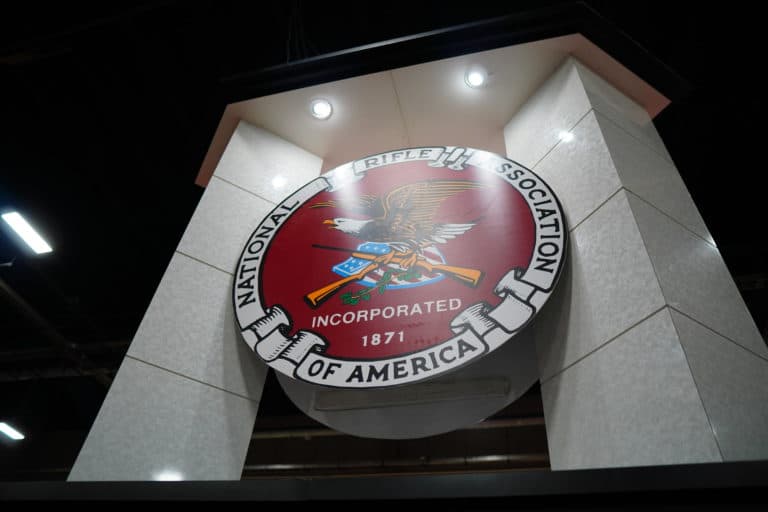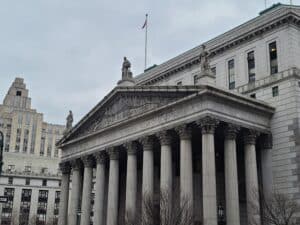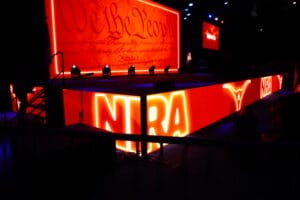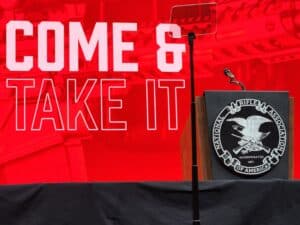Manhattan, New York – Judge Joel Cohen said he will hear further arguments on whether to drop certain charges against defendants in the NRA’s civil trial.
The NRA and individual defendants filed for a directed verdict after New York Attorney General Letitia James (D.) finished her phase of the case on Monday. For a directed verdict to be issued the judge would have to find that the AG has so failed in making her case that a rebuttal is not necessary–effectively notching an automatic win for the defense on the charges at issue. The defendants argue much of the AG’s case should be discarded because she either failed to establish certain NRA insiders were “whistleblowers” under the law or because some of the individuals she is pursuing, such as General Counsel John Frazer, aren’t subject to the law she is using.
“I will let the parties brief it out,” Judge Cohen said before setting a Friday deadline for filings on the issue.
The case will continue on as the judge considers the motion, but his decision on it will impact the outcome of the case. If he sides with the defendants, that would severely undermine the AG’s effort to force NRA leadership, including former CEO Wayne LaPierre, to repay millions of dollars they allegedly diverted toward personal expenses and bar them from working with the group or any other non-profit. It could also dash her hopes of obtaining a court-appointed overseer to manage the gun-rights group–whom she has referred to as a “terrorist organization” in the past. If the judge sides with the AG, the case will proceed through the defense phase and on to a final verdict that could see the nation’s largest gun group forcibly reformed.
The judge could also render a partial ruling in favor of the defense, allowing certain charges to proceed while ruling that the state has failed to make its case on others.
The defendants’ arguments centered largely on the applicability of New York’s Estates Powers and Trusts Law (EPTL) to nonprofit corporations and their executives. The statute contains a provision that subjects any nonprofit corporation organized for “charitable purposes” to certain registration and reporting requirements. However, “charitable purposes” are defined using language that echoes the IRS’s federal 501(c)(3) classification. The NRA, a 501(c)(4), admitted that the law governs some of its funds and activities. But it argued that the statute’s provisions relating to the “administration” of charitable property should only apply to its restricted charitable donations, not to general funds used for noncharitable activities such as lobbying.
The individual defendants, meanwhile, say the statute does not apply to them at all: an accountant or lawyer who accepts a position at a New York nonprofit, they argue, does not sign up for the same responsibilities as the “trustee” of a charitable foundation or bequest. The “trustee” designation set off a round of frenzied discussion in the courtroom on Monday.
Judge Cohen said he felt he had “enormous reason” to issue a directed verdict on the trustee point.
He argued that the trustee claims are “largely, if not entirely, duplicative.” He then cautioned that the Attorney General’s position would be a “vast expansion of the definition of trustees,” and would claim that “anyone who signs up for a job as General Counsel isn’t just covered by fiduciary duty, but is also [subject to the requirements of] a trustee.” But he also offered the AG an opportunity to file a brief further explaining her position.
Judge Cohen questioned why, if the AG is willing to apply that standard to the NRA in this case, “Don’t we see more cases” brought along similar lines.
The state defended its unique focus on the NRA as “extremely important to [their] office” – and urged the judge to maintain EPTL claims om the ground that they afford a greater variety of “equitable remedies.” As an example, the AG’s office raised the possibility of LaPierre unretiring and taking control of the organization again if the AG doesn’t get her preferred remedy.
“Wayne LaPierre could come back,” the lawyer representing the AG argued.
A lawyer representing the NRA responded that there were “other remedies the state could seek using corporate law.” However, the AG would have to satisfy “derivative standing” to obtain them. In other words, the NRA argued the AG could obtain wider-ranging relief, but would need to get support from at least some NRA members since the AG is purportedly bringing the suit to protect them.
The NRA also took issue with the AG’s claims regarding alleged retaliation against whistleblowers, which the group’s lawyer called “lurid and offensive.” It claimed “some of these claims had no evidence.” The group filed a document disputing the AG’s application of the whistleblower label to 16 current or former NRA employees or directors, or else disputing that these individuals were retaliated against. The filing came after the group attacked the label as applied to former NRA First Vice President Willes Lee in court on Friday.
The AG called Willes Lee to the stand to testify about public statements he made after the NRA board amended the group’s bylaws to keep current NRA President Charles Cotton in place rather than have Lee ascend to the position. Those statements attacked members of the NRA leadership and accused others of remaining silent because “they see what happens (even to offers) when you speak.”
“Let me get this straight? The people leading NRA during the admitted abuse (plus NYAG alleged corruption) endorsed and reelected the people watching the coop [SIC] during the (alleged) corruption and admitted abuse, so that those people can lead the NRA into the future free from abuse and (alleged) corruption,” Lee said in one Facebook post on May 31st, 2023. “Okay, got it.”
However, Lee’s tune changed once on the stand. While he did not dispute what he’d said in the social media posts, he also testified he didn’t know what he meant by many of them. He refused to offer any further criticism of the NRA or its leadership during his testimony.
When Svetlana Eisenberg, who represents the NRA, asked Lee whether he viewed himself as a whistleblower, he said, “No.” When asked if he had experienced retaliation of any form, he again responded, “No.” The AG objected to those questions on relevance, but Judge Cohen allowed them to stand because the AG had specified Lee as a whistleblower in its discovery responses. “If the government is withdrawing its allegation that Lee is a whistleblower, we do not need to pursue this questioning,” Sarah B. Rogers, another lawyer for the NRA, responded to the AG’s objection.
Judge Cohen scheduled closing arguments in the case to begin on February 15th, with deliberations slated to start the next day. That means the case will likely finish next week whether he decides to issue a directed verdict or not.







One Response
With Spock-like airs, “Fascinating.”